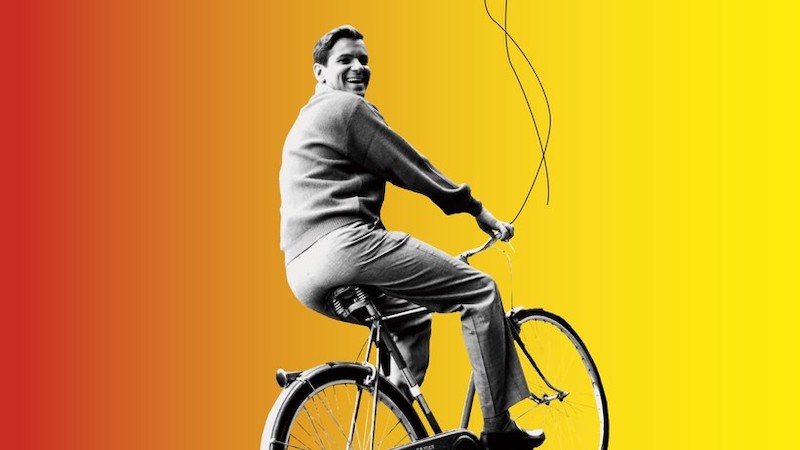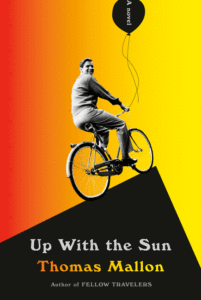
Our five-alarm fire of fabulous reviews this week includes Hamilton Cain on Mariana Enriquez’ Our Share of Night, Sophie Gilbert on Pamela Anderson’s Love, Pamela, Matthew Specktor on Thomas Mallon’s Up With the Sun, Hermione Hoby on Carmela Ciuraru’s Lives of the Wives, and Laura Hackett on Dizz Tate’s Brutes.
*
“I frequently thought of True Blood as I read Mariana Enriquez’s masterpiece of genre mash-up, Our Share of Night, the Argentine writer’s first novel published in English. Lauded for her short fiction, Enriquez here slathers on supernatural conceits: How better to respond to that country’s violent history than with a shadowy sect teeming with wraiths and demons, a haunted house, a dynastic family that would sacrifice its own to maintain power? Make no mistake, though: Our Share of Night is a literary achievement, gorgeous and exacting in its execution … An American based in Santiago, Chile, McDowell has grasped the torch passed by luminaries such as Edith Grossman; translation, to invoke Grossman’s famous metaphor, isn’t merely copying one language over another, like tracing paper, but rather an act of creation unto itself. Our Share of Night teases out the nuances of Enriquez’s spirited, in-your-face style, political epic masquerading as satanic farce.”
–Hamilton Cain on Mariana Enriquez’ Our Share of Night (The Washington Post)
“When the subject of Pamela Anderson comes up, understatement likely isn’t the first word that comes to mind. And yet, as her entirely self-authored memoir, Love, Pamela, makes clear, it is actually her preternatural calling. She can virtually murder a man with a simple declarative sentence … the lechers, the mommy’s boys, the creeps, the men playing with women like human dolls—Anderson ticks them off as casually as items on a shopping list (from the jerk store, I’m dying to add). After decades of being a sex object, a punch line, a caricature, this is her moment to strike back … Love, Pamela is an account of how Anderson exposed something feral and monstrous in people, long before she became a model, and for decades after. Her particular combination of guilelessness, sex appeal, and determination was just too much for some to tolerate … At one point in her memoir, Anderson describes walking past the Paris home of the singer Dalida, who had died by suicide. ‘Her story reminded me how awful celebrity can be, how some women are painfully targeted, and how much it hurts to be exploited,’ she writes. ‘Used and objectified constantly.’ It’s the rawest note in the book. But it isn’t the end. The epilogue is a tribute in verse to home, to comfort, to art, and to the physical state of middle age that she seems grateful for because it asserts something she can’t take for granted: her survival.”
–Sophie Gilbert on Pamela Anderson’s Love, Pamela (The Atlantic)

“The tabloid-style death of a forgotten actor strikes one as rather narrow for a novelist of Mallon’s broad capabilities … But this quibble vanishes as the book commences and we are gulled, immediately, by its keen portrait of New York in 1980, its effortless evocation of period and its nimble description of an encounter between Dick and a pianist named Matt Liannetta on the eve of the actor’s murder … A pensive, often gorgeous depiction of the contrast — or really, the continuum—between gay life in Manhattan before Stonewall and life on the cusp of the AIDS epidemic … Up With the Sun’sgreat triumph is to render its world in not two dimensions but three, to make the lives of a pair of peripheral players not merely operatic but genuinely, shatteringly tragic.”
–Matthew Specktor on Thomas Mallon’s Up With the Sun (The Washington Post)
“‘Happiness,’ Henry de Montherlant once wrote, ‘writes in white ink on a white page.’ But if tales of contented people are so boring as to be illegible, the obverse is also true: What could be more fascinating than others’ unhappiness—and what more fruitful ground for extravagant misery than the bad marriages of crapulous egotists? It’s upon this shameful little human truth that Carmela Ciuraru’s lively Lives of the Wives: Five Literary Marriages is built. Reading her five portraits of these conveniently deceased figures and their fraught unions feels a bit like chasing fistfuls of candy with slugs of vinegar … the egregiously base male behavior on display here inspires an egregiously base question: Who was the rottenest of the lot? … Ultimately, the tittle-tattle is subsumed by the variegated and specific tragedies of real people and their real lives. The last word must go to Phyllis Rose: ‘It is, of course, one of life’s persistent disappointments that a great moral crisis in my life is nothing but matter for gossip in yours.'”
–Hermione Hoby on Carmela Ciuraru’s Lives of the Wives: Five Literary Marriages (The New York Times Book Review)
“In truth Brutes is not an easy read. But it is an impressive one, thanks to Tate’s almost frightening powers of description. It has been a long time since I read a novel that so viscerally evoked a feeling of place … Brutes’s narrative structure is complex and often taxing: this is a novel that rewards rereading. The girls’ collective voice switches between before and after Sammy goes missing, and is interspersed with the girls’ grown-up individual narratives. Tate’s experience as a short-story writer comes out in full force here … With its plot twists, grotesque horror and cartoonish villains, Brutes is a novel that refuses to be reasonable. That’s part of its unsettling charm. But as the shock of the ending wears off, it’s the humid atmosphere of Florida that will stay with you, the smell of rotting food and a contaminated lake. It’s an astonishing debut that will burrow under your skin.”
–Laura Hackett on Dizz Tate’s Brutes (The Sunday Times)
If you buy books linked on our site, Lit Hub may earn a commission from Bookshop.org, whose fees support independent bookstores.

